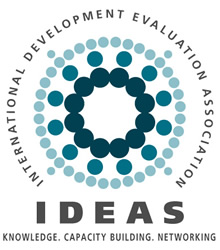| 3ie has launched the summary report of the most comprehensive systematic review on the impact of education programmes in low- and middle-income countries. The report was launched on Tuesday, 27 September, at the What Works Global Summit in London. The 3ie review examines the impact of 216 education programmes in 52 low- and middle-income countries. It synthesises evidence from 238 impact evaluations and 121 qualitative research studies and process evaluations. The summary report, The impact of education programmes on learning and school participation in low- and middle-income countries, distils the main findings and key implications for policy, programming and research. It offers governments and international agencies several useful pointers for helping them identify effective education programmes to meet the education Sustainable Development Goal.
Download the 3ie Systematic Review Summary Report
Read the 3ie brief based on the review
Main findings Education programmes typically improve learning or participation, but not both. Tackling the learning crisis requires concurrently addressing multiple barriers to quality education. What works in most contexts · Cash transfers had the largest and most consistent positive effects on increasing school enrolment, reducing dropouts and improving completion. However, on average, they have not improved learning outcomes. · Structured pedagogy programmes had the largest and most consistent positive effects on improving learning outcomes. These are programmes that typically provide customised curricula, new instructional approaches and teachers’ training, and educational materials for students. What is promising · School-feeding and community based monitoring interventions are among the few programmes that are promising for improving school enrolment as well as learning. · Public-private partnerships, new schools and toilets are promising for improving participation outcomes. · Extending the school day, remedial education programmes and meritbased scholarships are promising for improving learning outcomes. What doesn’t always work · School-based management programmes, computer-assisted learning and programmes providing education materials have not improved learning outcomes in most contexts. In the case of computer-assisted learning, the effects on learning outcomes have even been negative in some contexts. · What is unknown · The overall effects of implementing school-based health programmes, providing information to children or parents and reducing user fees are not clear because there have been few high-quality studies on these interventions.
For more information on the review visit: http://www.3ieimpact.org/en/publications/systematic-review-publications/3ie-systematic-review-education-effectivenes-srs7/ |


